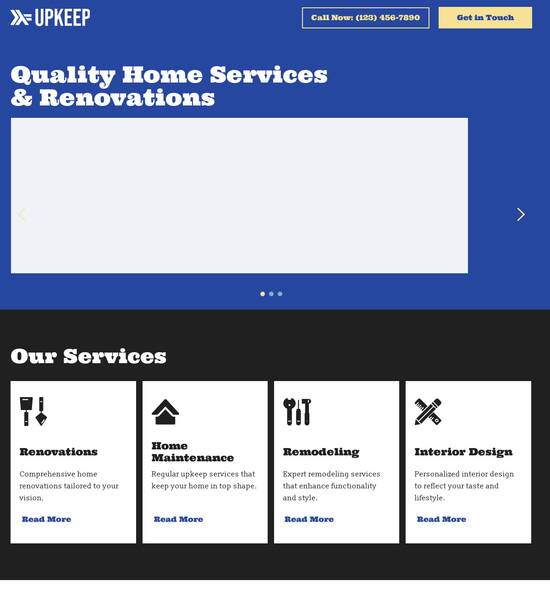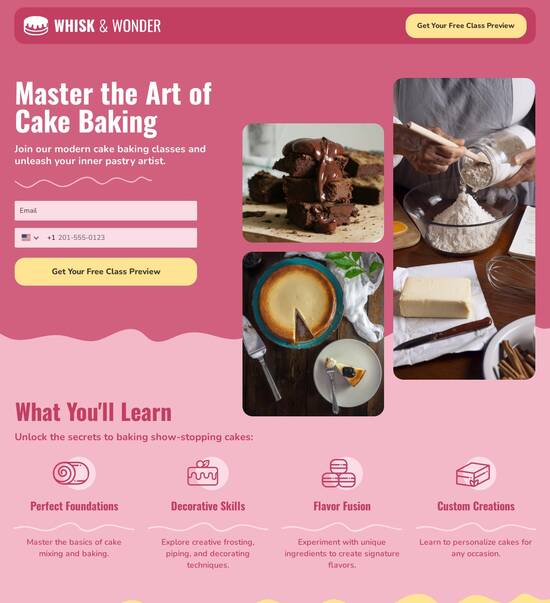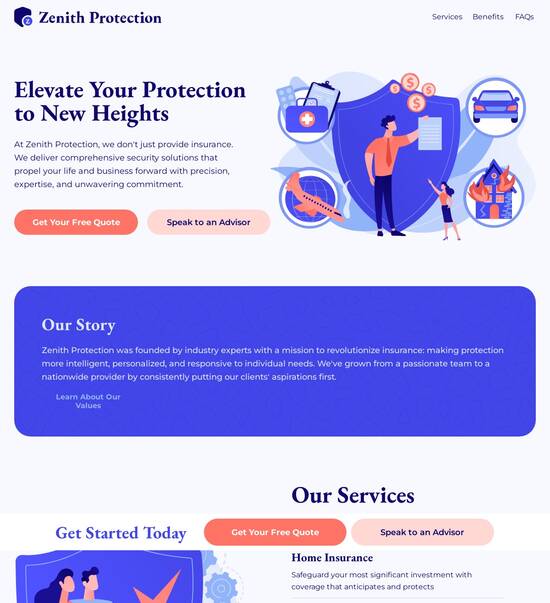
Wishlist page template optimized for iPad
Explore Similar TemplatesAbout template
Design using a responsive wishlist page template that delivers a flawless experience on iPad. Try Instapage today!
Recommended templates

Easy to build without coding
With the intuitive drag-and-drop builder, anyone on your team can create high-converting pages without any knowledge of code or design. Make enhancements to your landing page with custom widgets using Javascript, HTML/CSS, or third-party scripts.

Multiple layouts for any industry and goal
Select from 500+ landing page layouts built to boost conversions across industry-specific scenarios. Customize them by adjusting fonts, adding images, and generating on-brand content with the AI assistant. Quickly scale with Instablocks® and Global Blocks that you can save, reuse, and update globally.

Loads fast and looks polished on any device
Every template is responsive, which means they present professionally on any device and load blazingly fast with our Thor Render Engine. You can also power them up with Google AMP technology to deliver an unparalleled mobile experience and drive higher conversions.

Robust analytics & experimentation
Get real-time updates and reporting across all your devices, showing the number of visitors, conversions, cost-per-visitor, and cost-per-lead. Launch AI-powered experiments, run A/B tests, and use heatmaps to analyze user behavior, then optimize your landing page to maximize conversions.







Easy to build without coding
With the intuitive drag-and-drop builder, anyone on your team can create high-converting pages without any knowledge of code or design. Make enhancements to your landing page with custom widgets using Javascript, HTML/CSS, or third-party scripts.
Multiple layouts for any industry and goal
Select from 500+ landing page layouts built to boost conversions across industry-specific scenarios. Customize them by adjusting fonts, adding images, and generating on-brand content with the AI assistant. Quickly scale with Instablocks® and Global Blocks that you can save, reuse, and update globally.
Loads fast and looks polished on any device
Every template is responsive, which means they present professionally on any device and load blazingly fast with our Thor Render Engine.
Robust analytics & experimentation
Get real-time updates and reporting across all your devices, showing the number of visitors, conversions, cost-per-visitor, and cost-per-lead. Launch AI-powered experiments, run A/B tests, and use heatmaps to analyze user behavior, then optimize your landing page to maximize conversions.
All the features you need to build lead-generating landing pages
Explore more featuresLearn how to build top-performing landing pages for any goal
FAQs
Leading the way in building high-performing landing pages





Effective landing page design with Instapage
Creating a high-converting landing page is critical in today’s fast-paced digital landscape. Instapage provides a robust platform that simplifies the process, allowing you to quickly launch optimized pages that capture leads and boost your marketing efforts. This guide will detail the steps necessary to utilize Instapage effectively for maximizing your campaign’s ROI.
Understanding the importance of landing pages
Landing pages are essential for converting traffic into leads. They serve as dedicated spaces where prospective customers can learn about your offerings and take specific actions. A well-designed landing page can significantly improve your conversion rates, making it crucial to invest time in their creation and optimization.
- Targeted messaging: Tailor your content to align with user intent, ensuring your message resonates with visitors.
- User-friendly design: A clean and straightforward design enhances the user experience and keeps visitors engaged.
- Strong call-to-action: Clear and compelling CTAs guide users toward the desired action you want them to take.
Step 1: Choosing the right template
Instapage offers over 100 high-converting templates. Choosing the right one is crucial for ensuring your landing page aligns with your brand and campaign objectives. Consider the following when selecting a template:
- Alignment with your brand: Select a template that reflects your brand's identity and values.
- Relevancy to your offer: Your chosen design should support the specific campaign or product you are promoting.
- Adaptability to features: Ensure the template can accommodate necessary lead generation elements like forms and offers.
Step 2: Customizing your landing page
After selecting a template, you'll need to customize it. Instapage's intuitive builder allows easy modifications to fit your needs. Key aspects to focus on include:
- Content personalization: Use dynamic text replacement to tailor messaging based on traffic sources or audience segments.
- Multimedia integration: Include images and videos that complement your text and enhance engagement.
- Mobile optimization: Ensure your design is responsive, catering to users on various devices.
Step 3: Optimizing for conversions
To maximize your ROI, continuous optimization is required. Utilize Instapage's built-in tools to test and analyze your landing pages. Consider these strategies:
- A/B testing: Experiment with different headlines, CTAs, or designs to discover what resonates best with your audience.
- Heatmaps: Analyze user behavior on your landing page to identify areas for improvement.
- Analytics dashboard: Monitor performance metrics to assess the effectiveness of changes made.
By following these steps, you can leverage Instapage to create landing pages that are not only beautiful but also incredibly effective at converting visitors into customers.
Ready to elevate your digital marketing campaigns? Start utilizing Instapage today for seamless and powerful landing page creation.
People also ask about Wishlist page template optimized for iPad
Wishlist page template optimized for iPad
Understanding the wishlist page template: A gateway to enhanced shopping experiences
In the realm of online shopping, wishlists stand as valuable tools that bridge the gap between desire and purchase. A wishlist allows users to curate their ideal shopping experience by saving items for future consideration. This practice not only helps customers keep track of desired products but also aids retailers in improving user engagement and satisfaction.
The concept of a wishlist in modern shopping
Defining the wishlist involves understanding its multifaceted purpose in retail, serving as a collection point where shoppers can store their desired items. E-commerce has seen an evolution in wishlists, transitioning from simple 'save for later' functions to sophisticated tools packed with features that enhance the shopping experience.
The emotional connection associated with wishlists is profound, catering to personal desires and dreams. Maintaining a wishlist taps into the psychological benefits of deferred gratification, giving users a sense of control and anticipation over their purchases.
Crafting the ideal wishlist page template for iPad
When designing a wishlist page template optimized for iPad, several design considerations come into play. Responsive design is critical, ensuring that the layout adapts seamlessly to the iPad's screen size. This adaptability improves the shopping experience by providing consistent access across devices, making it easy for users to engage with their wishlists.
Touch interaction is another essential aspect. The interface should facilitate swiping and tapping, providing visual and tactile feedback. For example, users should expect a smooth experience when adding items to their lists, removing unwanted products, or rearranging their priorities.
Responsive design for screen adaptability.
Enhanced touch interaction for ease of use.
A clear visual hierarchy for effortless navigation.
Visual elements play a crucial role in capturing attention. High-quality images spark desire and elicit emotional responses. Appropriate color schemes that resonate with the brand can enhance users' connections with products, prompting them to return to their lists often.
Key features of the wishlist page template
User-friendly navigation is vital in creating an effective wishlist page. An intuitive layout with easily accessible buttons and links allows users to find and manage their desired items without frustration. Including a search functionality can further streamline the experience, allowing users to quickly locate specific products they've added.
Personalization options also enhance engagement. Users should have the ability to categorize their wishlists based on various occasions, such as birthdays or holidays. This feature encourages multiple visits as users return to curate their lists for special events.
Intuitive layout for navigation.
Search functionality for quick item access.
Customizable categories for specific occasions.
The role of wishlist in modern gift-giving
Wishlists significantly facilitate birthday purchases and other special occasions. Different cultures attach various meanings to gift-giving; a well-curated wishlist can simplify this process for both the giver and the recipient. Users often appreciate having a designated place for their desired items, making gift selection easier and more thoughtful.
Analyzing gifting trends through wishlist utilization provides valuable insights into consumer behavior. Retailers can leverage wishlist analytics to identify popular items and optimize their offerings accordingly. This adaptability helps retailers to capitalize on seasonal sales and events, matching inventory with consumer interests.
Technical aspects of an optimized wishlist page template
Load speed and performance on iPad devices are paramount. Optimizing images for faster loading times not only enhances user experience but also boosts retention rates. When users encounter a slow-loading page, they may abandon their wishlists and turn to competitors.
Utilizing lightweight frameworks can improve performance significantly. Choosing e-commerce tools that integrate seamlessly with wishlist features will streamline the shopping process, ensuring that shoppers can manage their lists without facing unnecessary hurdles.
Optimize images for fast loading.
Select lightweight frameworks for better performance.
Choose compatible shopping tools for integration.
The impact of wishlist functionality on sales
Turning desire into action is a crucial dynamics in sales. Analyzing conversion rates from wishlists to checkout can provide insights into shopper behavior. This metrics-driven approach allows retailers to implement scarcity and urgency tactics effectively, motivating customers to complete their purchases.
The cyclical nature of wishlists can foster customer loyalty. By reminding users about their saved items or informing them of price drops, businesses can encourage repeat visits. Integrating personalized marketing campaigns centered around wishlists can significantly bolster customer engagement.
Analyze conversion rates to refine strategies.
Implement tactics for urgency and scarcity.
Engage users with personalized reminders.
Social aspects of wishlist sharing
Incorporating social features into wishlist templates can enhance user engagement significantly. Facilitating sharing among friends and family not only broadens the reach of products but also creates a sense of community around shared desires. Users often seek validation from their peers when considering new purchases.
Creating a platform for users to discuss and recommend wishlist items can further enhance this community feel. Features that allow commenting and sharing suggestions can encourage users to interact more deeply with their lists and with one another.
Facilitate sharing among friends and family.
Build community platforms for discussions.
Allow user comments and recommendations.
Enhancing user experience through extras
To add value beyond the wishlist feature, integrating extras such as price tracking and stock notifications can enhance user experience significantly. When users feel they are capitalizing on potential savings or avoiding missed opportunities, they are more likely to return and interact with their lists.
Incorporating gamification elements can further boost engagement. Giving users rewards for interactions with their wishlist not only motivates regular engagement but can also transform a functional tool into an enjoyable experience. Features like progress tracking or badges for milestone achievements can enhance the overall interaction.
Integrate features for price tracking and notifications.
Utilize gamification for increased engagement.
Encourage sharing progress and achievements.
Showcasing successful wishlist implementations
Analyzing successful wishlist page implementations across different e-commerce sectors reveals key insights into effective practices. Retailers who excel in this area often offer streamlined experiences that prioritize user engagement and navigation efficiency.
Insights from user feedback provide valuable data for continuous improvement. Employing metrics for measuring wishlist effectiveness, such as user engagement rates and satisfaction levels, can help brands refine their offerings to meet evolving expectations.
Analyze different e-commerce sectors for effective practices.
Utilize user feedback for continuous improvement.
Employ metrics for measuring engagement and satisfaction.
Future trends in wishlist design and functionality
Anticipating shifts in user expectations is essential for staying relevant. The potential impact of AI and machine learning can enhance wishlist customization significantly. Personalizing subsets of wishlists based on user preferences can foster deeper connections between retailers and consumers.
The integration of augmented reality for product visualization stands as another exciting frontier. Users might use their devices to visualize products in their space, enhancing decision-making and increasing conversion rates. As technology continues to advance, embracing a holistic approach to wishlist features will shape the future of online shopping.
Leverage AI for deeper personalization.
Consider augmented reality for enhanced visualization.
Embrace a comprehensive approach to user experience.
Ready to skyrocket conversions?
Supercharge your ad campaigns with high-performing landing pages
Get started














